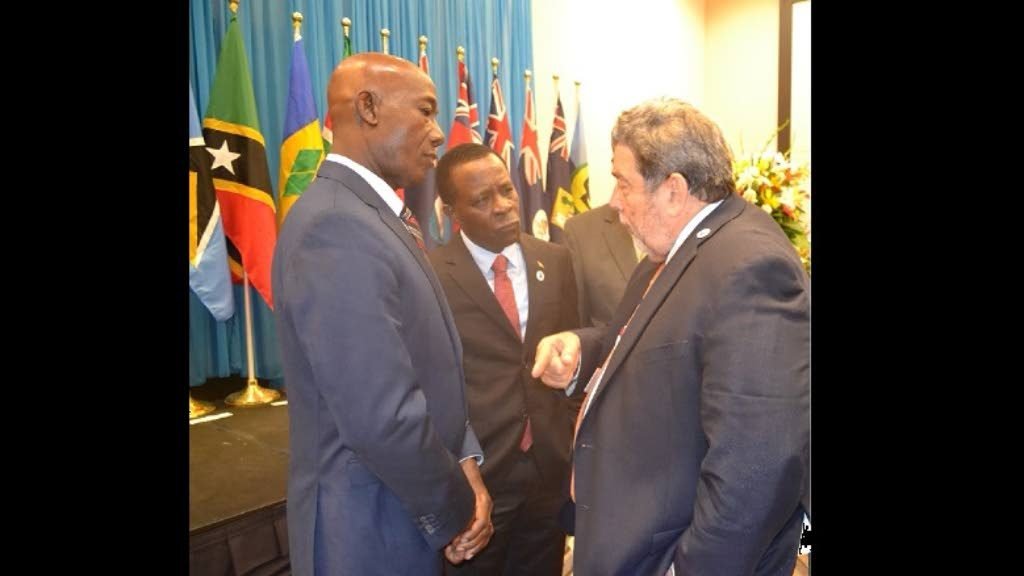Caricom to meet ICC on WI cricket

CARLA BRIDGLAL
CARICOM heads will meet with the International Cricket Council (ICC) to discuss the possibility of introducing a legislative solution to protect the legacy of West Indies cricket.
Rowley said the regional union had sought, received and accepted the legal opinion of two Queen’s Counsels that West Indies cricket was a public good. Rowley noted that West Indian politicians had “no intent, desire or requirement” to manage West Indies cricket, but they will intervene to protect the sport in the context of a public good, seeking to enact legislation in the interest of best practice to protect the legacy and future of the game.
Caricom, he said, had made the unanimous decision to intervene in an attempt to bring about “some sanity” to the management of West Indies cricket. “Anybody will say that West Indies cricket is part of our heritage. You cannot be West Indian and not be aware of the pride that emanates from our history of cricket,” he said.
As such, a Caricom committee headed by St Vincent and the Grenadines Prime Minister, Dr Ralph Gonsalves, of which Rowley is a member, will meet the ICC when the Commonwealth Heads of Government meet in London, United Kingdom, in April. Discussions will focus on Caricom’s interpretation of West Indies cricket as a public good.
Asked why Caricom needed the ICC’s approval before intervening in the game, he noted that the international sport is governed by that body and its rules and regulations.
“If you want to be part of that body, you have to (adhere to their rules). We are certainly not even contemplating even being outside of the rest of the world. We want to be inside, under the rules and regulations of the ICC, but we want to be able to manage our own affairs,” he said.
The failure of West Indies cricket is not the ICC’s he said, but the region’s, and it needs the proper regulatory and legislative framework to overcome it.
Rowley acknowledged the contribution of governments to cricket, funding most of the junior and even senior competitions, as well as owning several cricket stadia and other venues.
“The State has a big stake in West Indies cricket,” he said.
He noted that governments cannot just dissolve the board of Cricket West Indies (CWI), the regional governing body for the sport, because it didn’t appoint the board. “(CWI) has evolved in such a way and has a life of its own. And if we go like a bull in a china shop with righteous indignation, we can find ourselves running afoul of the ICC,” he said.
CARICOM’s position mirrors the struggle currently taking place in India where members of its Government are keen on classifying the powerful Board of Control for Cricket in India (BCCI) as a public body.
If this occurs, the BCCI will be subject to constitutional checks by the Supreme Court and high courts, and would face questioning on the fairness of its decisions.
CWI and CARICOM have been at loggerheads since a Governance Review report by CARICOM recommended the immediate dissolution of the board.
The recommendation, however, was categorically rejected by the board.


Comments
"Caricom to meet ICC on WI cricket"